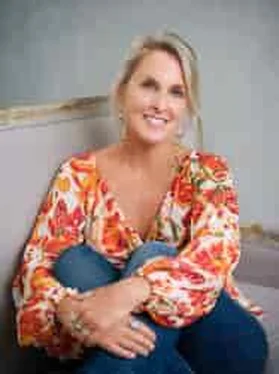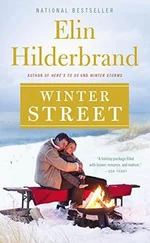He lets the envelope go.
When he gets back to the apartment, he’s sweating and shaking. He should toss the other envelope as well, the one with the sand dollars and the fortunes.
But no, sorry, he can’t do it. He has to hold on to something.
When Jake regains his health, he finds himself at a loss. What has been going on with his job search? Nothing, that’s what, because he’s been so sick, and there’s no denying that quitting his job has left him in no-man’s-land. They have plenty of money, so Jake buys himself a new Gateway computer, sets up his own personal e-mail account, and polishes his résumé. He establishes a routine—he goes for a morning run in East Potomac Park, then buys the Washington Post on his way home and peruses the classifieds. He toys with going back to school, even medical school, but in his heart, he doesn’t want to be a doctor. He thinks again of becoming a teacher, like Mallory. He envisions himself overseeing labs and giving quizzes on the periodic table.
He likes people, he likes talking to people, he likes advocating for the things he believes in. He should go into development, fund-raising. He has no qualms about calling people up and asking for money. He contacts the alumni office at Johns Hopkins. They invite him down for an interview and offer him a job on the spot. They’re no dummies; Jake was a popular, well-liked, and successful student at Hopkins, president of the Interfraternity Council and a member of Blue Key, giving tours to prospective students. Who better to represent Johns Hopkins than Jake McCloud?
But the job is in Baltimore; it would be a commute, and presently he and Ursula have no car. He could take the train up each day, he supposes, but something about the job doesn’t feel quite right. It doesn’t feel like he’s stretching himself enough. He wants to grow.
Ursula is patient and encouraging but the bubble over her head says: Just figure it out, already! It also says: I am too busy to get into the foxhole with you. (The bubble over her head always says this, no matter which foxhole it is.) Jake can sense her interest in him waning. She is so immersed in work—big companies gobbling up little companies like a corporate game of Pac-Man—that he can tell she has to remind herself to ask about his day. She’s careful not to offer too many hard opinions. You want to work at Hopkins, then work at Hopkins —although when he turned the job down, he could see she was relieved. Or maybe she was disappointed? Maybe she wanted to be able to tell people that her husband “works at Johns Hopkins” (she wouldn’t have to say “in the development office” and she wouldn’t have to mention it was his alma mater). Maybe she wanted him to have a long commute so they would never see each other.
In June, Ursula gets assigned to a merger in Las Vegas.
She flies out there for a week. The firm puts her and her team up at the Bellagio; Ursula has a suite. She flies home for the weekend, then flies back, then does the same the following week. But then one Friday she calls to say her meetings ran late, she missed her flight, and she’s just going to stay in Vegas for the weekend. “In fact, it doesn’t make sense for me to keep going back and forth,” she says. “I should just stay out here until the deal is finished.”
“Okay?” Jake says. “Is that what Anders is doing?”
“Anders?” Ursula says. “I mean, yeah, that’s what the whole team has been doing. I’m the only one going back and forth. Well, except for Silver, but he has kids.”
“The team” is only four people—Ursula, Anders Jorgensen, a colleague named Mark something, and Hank Silver, Ursula’s boss. Anders is single, Mark is single and gay, Hank is married with five kids, all of whom play squash and have tournaments literally every weekend. Hank goes home because his wife insists on it; it’s just not possible to have five kids playing squash and only one parent present. Anders was once a linebacker at USC, which gives him a non-work-related rapport with Ursula because of the famous USC–Notre Dame rivalry. Ursula can talk college football like no other woman Jake or Anders has ever met.
Is Jake jealous of Anders? Well… “Oh, okay,” Jake says. He is jealous, but he won’t succumb to this base emotion, he’s hardly innocent himself—and besides, to act jealous of Anders will only make Anders appear bigger and Jake smaller. “Enjoy. Get some sleep.”
“Why don’t you come here next weekend?” Ursula says. “I think you’d actually like it.”
When Jake lands in Vegas, it’s 111 degrees. He flew coach because he didn’t feel right using Ursula’s miles to upgrade to first class when he was contributing exactly zero to their household income. He arrives tired and foul-tempered and therefore finds nothing to appreciate in either the desert landscape or the skyline, which looks, from a distance, like some kid forgot to pick up his toys. Jake’s taxi cruises past the iconic WELCOME TO LAS VEGAS sign and within moments they are on the Strip. Jake’s taxi driver, Merlin, takes it upon himself to act as Jake’s personal tour guide. (Merlin can tell that this particular fellow will be difficult to impress. Merlin concedes that Vegas isn’t for everyone, but that doesn’t stop him from flexing his powers of persuasion. He points out the Stratosphere with the roller coaster at the top; Circus Circus; the Mirage, where the white tigers live; Treasure Island, with a pirate show out front every hour on the hour; the Venetian, which has canals winding through it and singing gondoliers; Caesars Palace; Paris; New York–New York, with a Krispy Kreme doughnut shop inside; Excalibur; Luxor; and Mandalay Bay, which has a Four Seasons Hotel in one of its towers. Merlin pulls up to the Bellagio. “This is the jewel in the crown,” Merlin says, and he believes it. Sometimes he smokes a joint and watches the dancing fountain show out front three, four times in a row.
He hands the fellow a card. “Fifty percent off Cirque du Soleil,” Merlin says. “Call me.”
“Thanks,” the fellow says. His voice is flat but that doesn’t mean he won’t call, Merlin thinks. It can take time for Vegas to grow on you.)
At check-in, it’s discovered that Ursula has forgotten to put Jake’s name on the room, so the front-desk clerk, Kwasi, can’t give him a key.
“But I’m her husband,” Jake says.
“I understand your position,” Kwasi says. “And I hope you understand mine.” (Kwasi’s position is that maybe this guy is Ursula de Gournsey’s husband, maybe he’s not—but even if he is her husband, she might not want him in her room.) Kwasi slides a ten-dollar poker chip across the desk, which Jake accepts before he even realizes what it is.
He says, “What am I supposed to do with this?”
(Kwasi thinks, If you have to ask … ) He smiles. “I recommend the roulette wheel.”
Jake finds a pay phone and calls Ursula’s cell. He gets her voicemail and hangs up. The point of her cell phone, he thought, was so that people could reach her night and day. But likely she’s cloistered with her team in meetings—except that it’s six o’clock and Ursula told him that morning, which now feels like three days ago, that she would wrap up at four because Silver needed to catch a flight back to his family.
Jake decides to sit on the banquette by the main elevators and wait. He has a book with him— Plainsong, by Kent Haruf, which is spare, haunting, and precisely the opposite of what he should be reading when he’s already feeling abandoned. To pull it out and read amid the exuberant go-for-broke atmosphere of the lobby, with its lights and sound of raining coins, its smoky haze and smell of rye whiskey, would make him seem hopelessly square. He has a ten-dollar chip. He should use it.
Читать дальше












